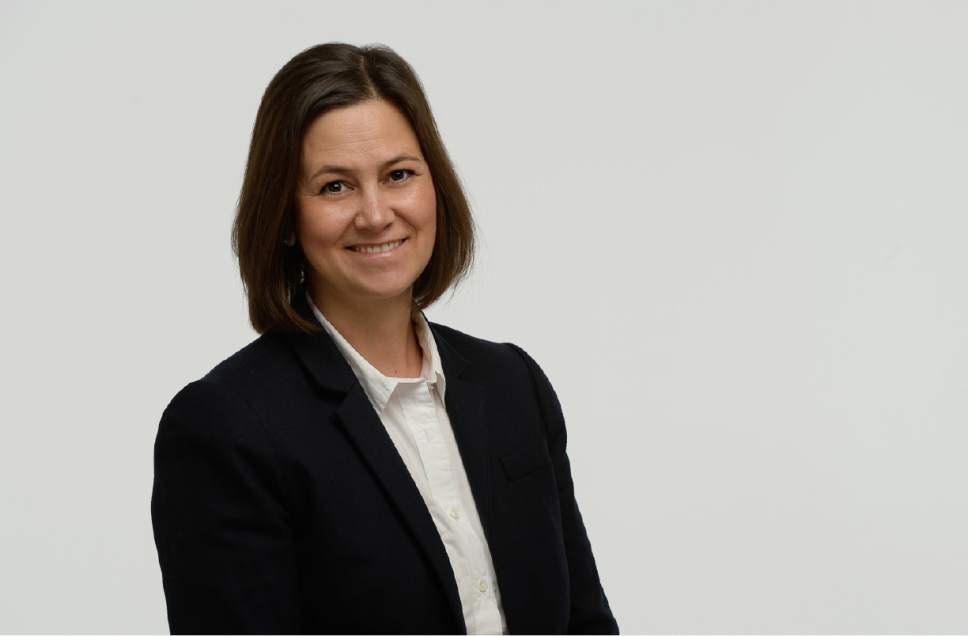This is an archived article that was published on sltrib.com in 2017, and information in the article may be outdated. It is provided only for personal research purposes and may not be reprinted.
"To be an effective criminal defense counsel, an attorney must be prepared to be demanding, outrageous, irreverent, blasphemous, a rogue, a renegade, and a hated, isolated, and lonely person — few love a spokesman for the despised and the damned."
— Clarence Darrow
The despised and the damned – that is what many consider our criminal defendants to be. Not innocent until proven guilty. Despised and damned.
My grandfather was a Hoover FBI man – he worked for the Federal Bureau of Investigation during the years J. Edgar Hoover was its director. I grew up looking at his memorialized handgun and medals framed in a shadow box displayed prominently on the wall of my grandparents' den. I loved listening to his stories about his days as an agent.
He sometimes talked about his time in Las Vegas during the heyday of the gangster era. I was lucky enough to inherit the Flamingo cuff links the new hotel boss gave him as a peace offering. Hoover never advocated prosecuting gamblers anyway. Grandpa was also a key agent on the Patty Hearst kidnapping case. He never believed her story.
But my favorite story was how he beat down an attempted robber who held a screwdriver to his neck and demanded his wallet. He was in his 70s, and he beat the guy back with his cane.
With this family history, I grew up a law and order girl. I certainly didn't sympathize with criminals. That changed after I started practicing law and realized that the system only works when those entrusted with administering it are honest brokers of their duties to protect the innocent and fight for justice. I saw too many fighting for pride and money, and too many not fighting at all.
The Sixth Amendment requires that defendants facing jail time are entitled to representation, even, and especially, when they cannot afford it. In such cases, the government is obligated to pay for counsel. That counsel should be competent and vigorous, otherwise the system fails.
One of Utah's own judges likes to boast that defendants who are too poor to afford their own counsel are only entitled to a "Chevy" defense, and not a "Cadillac" defense. In other words, Utah defendants deserve adequate lawyers, but not vigorous, aggressive or even effective lawyers. The courts limit attorney time and cut reimbursement costs under this belief that only the minimum is required. This is so short-sighted it's almost criminal.
For more than two decades dedicated lawyers from the Rocky Mountain Innocence Center worked to exonerate DeMarlo Antwin Berry from a conviction for first-degree murder. He was serving a life sentence, and he was completely innocent. Yet he served 23 years in jail.
Innocent projects like RMIC dot the nation's legal landscape and are often used as clinical training for young lawyers and pro bono outlets for bored and rosy mid-level law firm associates. They prop up a broken system.
Bryan Stevenson, a leader and tireless advocate in this field, is executive director of the Equal Justice Initiative based in Montgomery, Alabama. His book, "Just Mercy: A Story of Justice and Redemption," chronicles the successes, and failures, he has encountered as an advocate for men and women too poor to afford their own counsel. They aren't innocent until proven guilty; they are guilty. Full stop.
Stevenson's work illustrates the severity and institutionalization of inadequate indigent defense systems.
Utah has begun to reform its indigent defense system by funding a state-wide Indigent Defense Commission to appropriate funds to counties in need. The commission is also looking at ways to prohibit flat-rate defense attorney contracts, which incentivize pleading out cases quickly, and separate defense contracts from prosecutors' offices so prosecutors aren't deciding who they're going up against. The Legislature also reduced penalties for drug crimes and promoted treatment as opposed to incarceration. But, as our own Chief Justice Matthew Durrant has noted, the reforms will not help if we cannot also fund treatment centers for mental health and addiction.
The reforms are overdue and greatly needed. But we need more than just substantive reforms. We need a paradigm shift back to celebrating the greatness and uniqueness of America's judicial system – a system where an accused person is innocent until proven guilty, and where the accused has access to a diligent, aggressive and zealous defense.
We can't afford to give our defendants Chevys any longer. Why? Because we are better than that.





